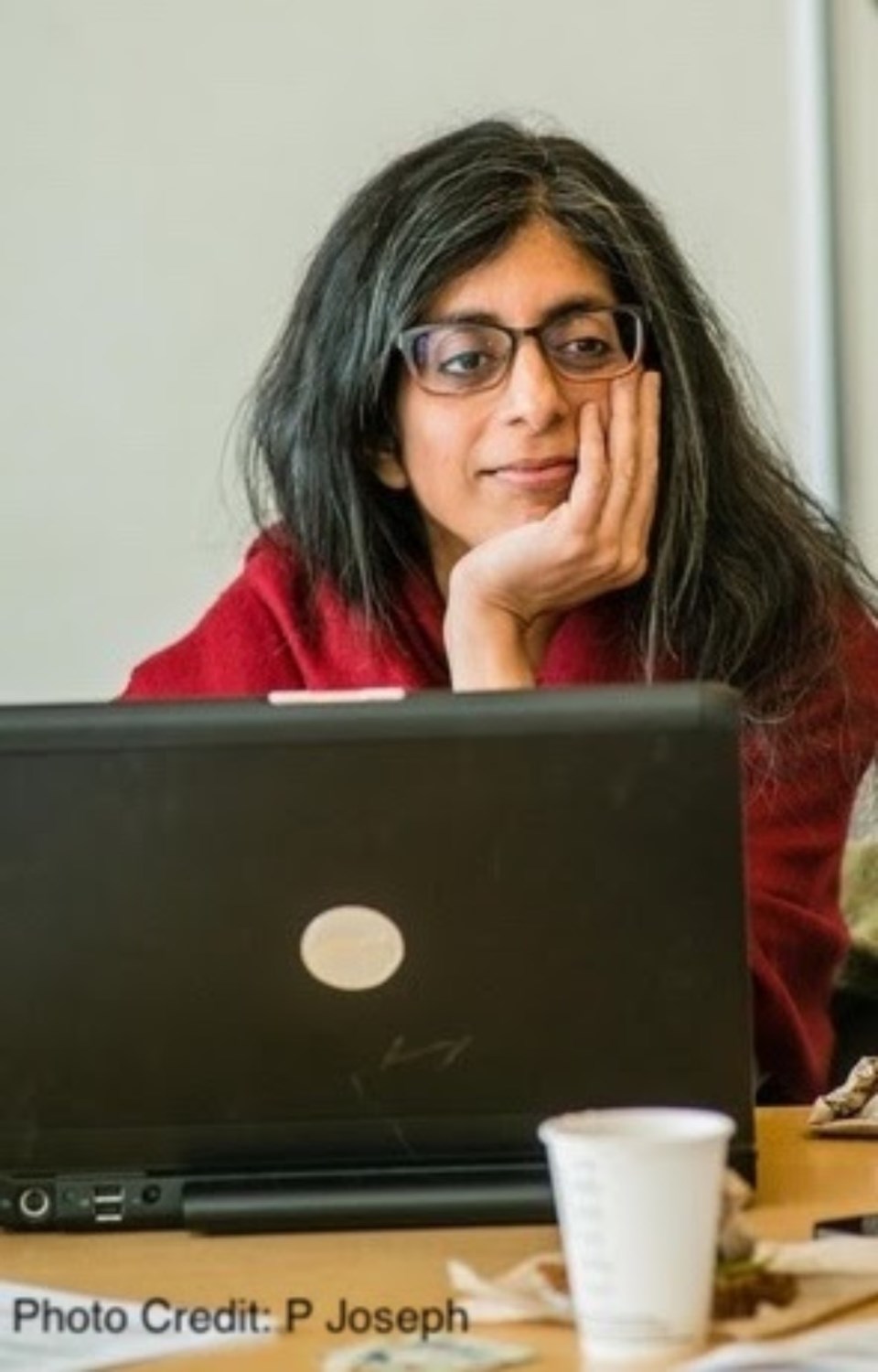“...rather than blaming disability on sin, the sin lies in how society responds to people with disabilities, with moral judgements, pity, patronizing attitudes, and general discomfort.”
~ Michelle Voss Roberts, Body Parts: a Theological Anthropology
I’ve heard anger expressed at the Divine when someone is ill, disabled or suddenly dies – statements such as I’m being punished for a sin; it’s God’s will/test; or there’s a larger purpose. I never had such thoughts until I too was diagnosed with an incurable chronic illness – Multiple Sclerosis (MS). I had pity parties (sometimes still do). I recall, upon diagnosis, riding the BC ferry – standing on deck – I watched a seagull soar. I shook my fist at the sky and yelled, “why me, Allah?” I grabbed the ferry hand rails and declared, “I’m angry with You!” Teardrops mixed with the ocean.
After eight years with MS, I changed course: live each day to its fullest as though it’s my last. I turned MS into a gift and became public about it – not as a victim, not for pity. Fast forward 20 years later, I’m a published poet writing a memoir: Letters to Rumi, my spiritual path about identity and belonging which also includes becoming disabled. Research involves reading English translations of the Qur’an and other works along with many prayer-filled moments. I do ask Allah for cures, miracles, forgiveness of any sin I may have committed and not be punished. Yet, I wonder why do I think the Creator is out to get me? After researching I realized, unfortunately, my past experience has been hearing sermons in some places of worship (including mosques) only about sin, punishment and to fear the Divine. What about Allah’s love?
Side note – the World Health Organization, Statistics sa╣·╝╩┤½├Į and the MS Society of sa╣·╝╩┤½├Į report:
- 1.3 billion people around the world currently experience significant disability;
- global estimate for disability is on the rise due to population ageing and the rapid spread of chronic diseases;
- 6.2 million people in sa╣·╝╩┤½├Į aged 15 years and over have some type of disability; and
- 2.8 million people around the world have MS and sa╣·╝╩┤½├Į has the highest rate with over 90,000 people living with MS!!
Isn’t anyone else alarmed by this data?
Who’s to blame? I don’t blame the Creator. I blame humanity (including myself). We’ve destroyed our planet with toxins, pollution, unhealthy processed foods, development, greed, etc., in the name of progress, convenience and money. As a result, we’ve made ourselves and our planet sick. Chronic illnesses and disabilities are on the rise and more frequent. This IS a concern!
I’ve heard, “why doesn’t God save us?” Sure, God can. Through research, I’ve learned the Qur’an states Allah gave us everything – a clean world, unlimited resources, free will/choice, including cures for illnesses. Doesn’t the accountability lie with us to save the planet and ourselves? We are trying, but the data above is worrisome. So, how will we, including those with power and wealth, respond further? I don’t believe it’s up to Allah to save me or us. It’s up to us.
Any illness or disability is not easy. Mine is mixed with good days and bad along with fears and hope. I live more fully than I did before, try to remain open to change, and feel Allah’s love, compassion and mercy. I’m not being punished. The test is to embrace disabilities and continue to push for action on improving our damaged environment so that people of all abilities live healthy dignified lives. Perhaps there’s still hope for humanity.
Meharoona Ghani, MA, former Artist in Residence at University of Victoria’s Centre for Studies on Religion and Society; a Diversity Specialist; and a writer published in many collections, including: Body & Soul: Stories for Skeptics and Seekers, Caitlin Press; & The Muslimah Who Fell to Earth, Mawenzi House Publishers. Meharoona’s writing has been shortlisted by the Federation of BC Writers for their 2021 Literary Contest (forthcoming anthology). She continues to write Letters to Rumi – her journey of identity and belonging. Learn more at: . Meharoona is grateful to be welcomed to live on the unceded territories of the l╔Ök╠ō╩Ę╔Ö┼ŗ╔Ön, Songhees, Esquimalt and ░┬╠▒│¦&┤Ī▓╣│”│▄│┘▒;▒ĘĘĪ─å peoples.
You can read more articles on our interfaith blog, Spiritually Speaking at /blogs/spiritually-speaking
* This article was published in the print edition on Saturday, July 29th 2023



